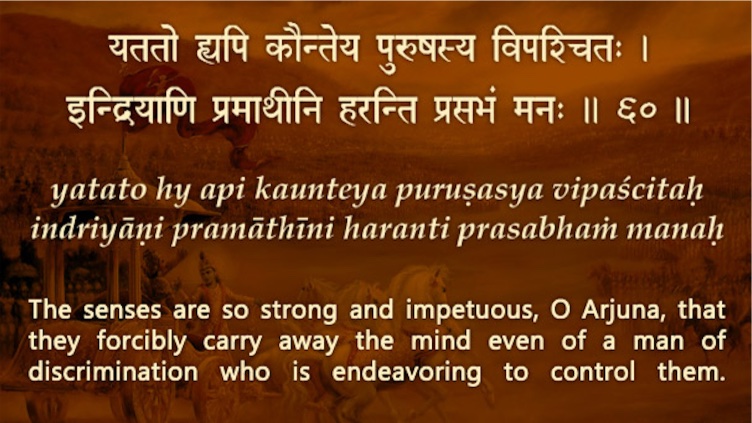Winning the War Against Temptation
By Chaitanya Charan Das | Oct 25, 2019

When we make resolutions to give up some unhealthy indulgence, we often relapse. On succumbing thus, we may berate ourselves for being witless: “How could I have been so dumb as to fall for that yet again?” Or we may berate ourselves for being willless: “I am too much into this; I have no determination. I am lost”
Such self-condemnation is often misconceived because our relapse may be caused by something else: weaponlessness.
Suppose a heavily armed enemy attacks an unarmed soldier. Even if the soldier is spirited and sharp, if they are armless, they will most likely succumb.
Similar may be our predicament in our war against temptation. In this war, temptation attacks us with the weapon of inner torment, with a sense of being deprived of pleasure. Over time, that sense of deprivation becomes so unbearable that we indulge — not because indulging is so joyful, but because resisting is so painful.
Pertinently, the Bhagavad-gita (02.60) states that sensuality overcomes even those who are discerning and endeavoring. That they are discerning means they have wit. And that they are endeavoring means they have will. Why do they still succumb? Because they are weaponless, as indicated by the preceding and succeeding Gita verses. The taste for sensuality remains even if we physically restrain ourselves (02.59). We transcend sensual taste when we get a higher spiritual taste, when we focus our consciousness on the all-attractive divine, Krishna (02.61). This divine focus gives us a higher fulfillment or at least a higher purpose. Either of these can shield us from the torment with which temptation hounds us.
Therefore, rather than berating ourselves for relapsing, if we strive to equip ourselves with absorption in Krishna or at least connection with Krishna, we will gradually start winning the war against temptation.















